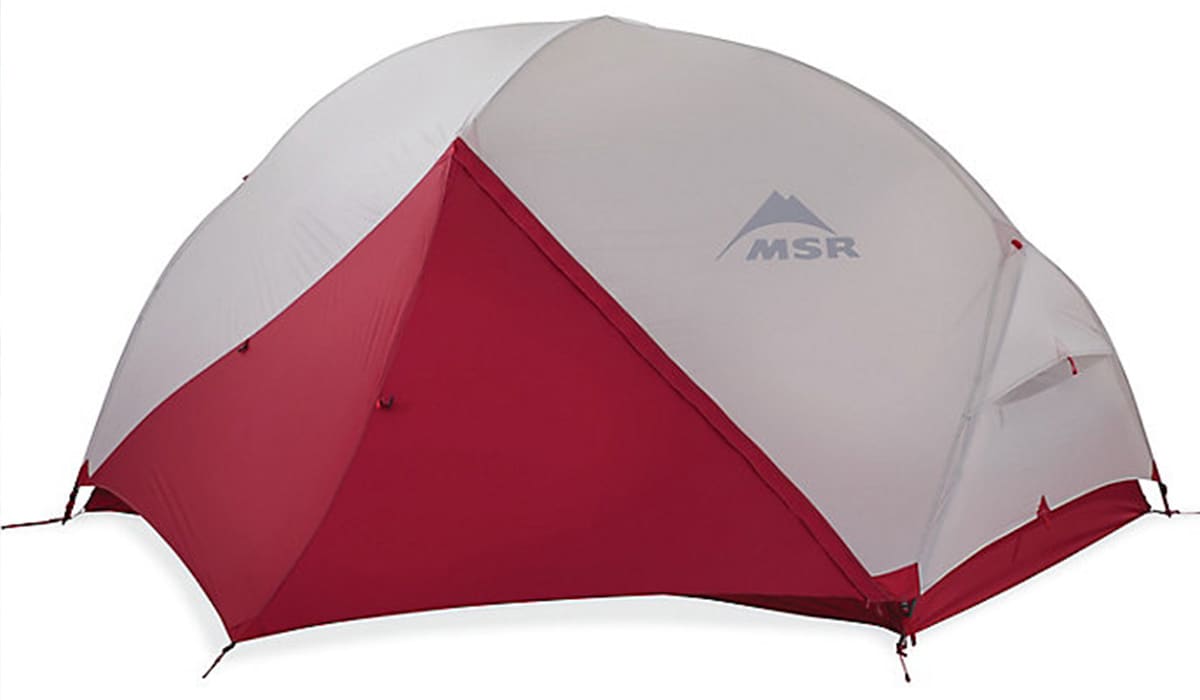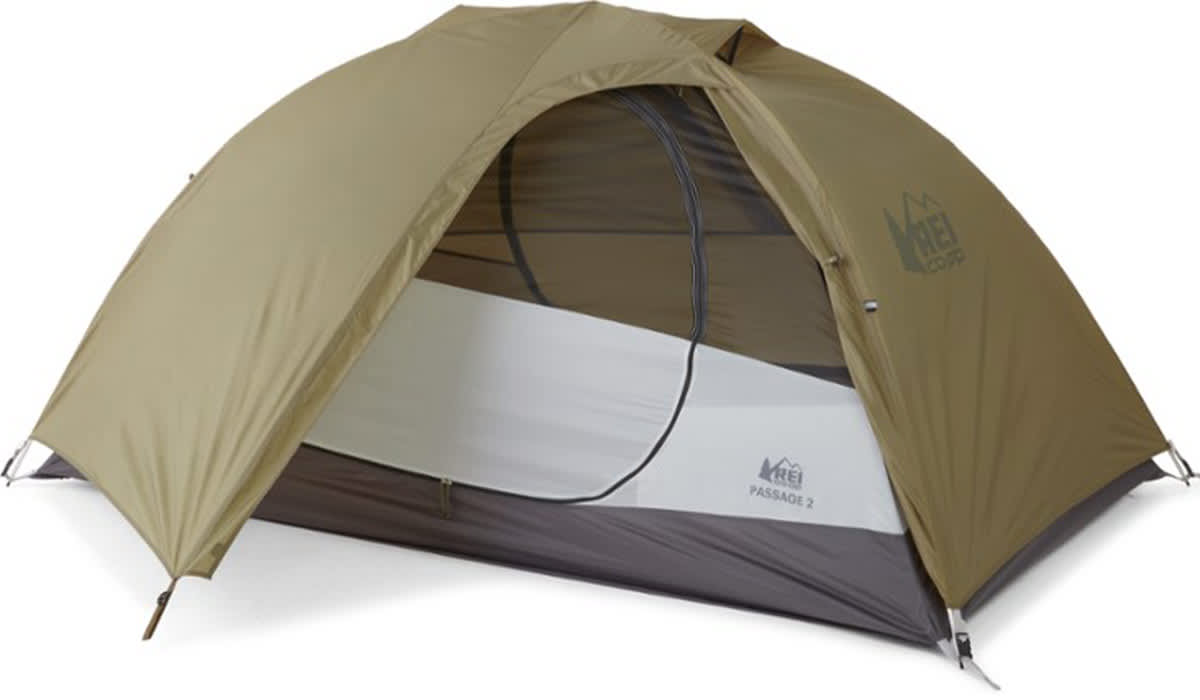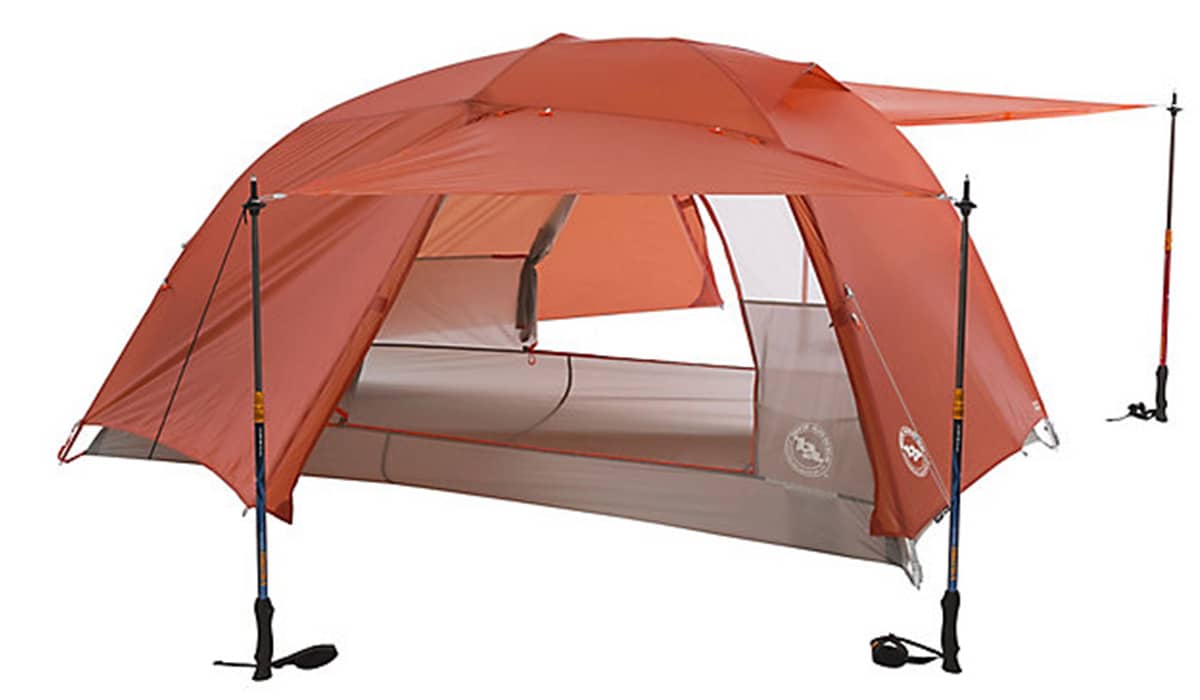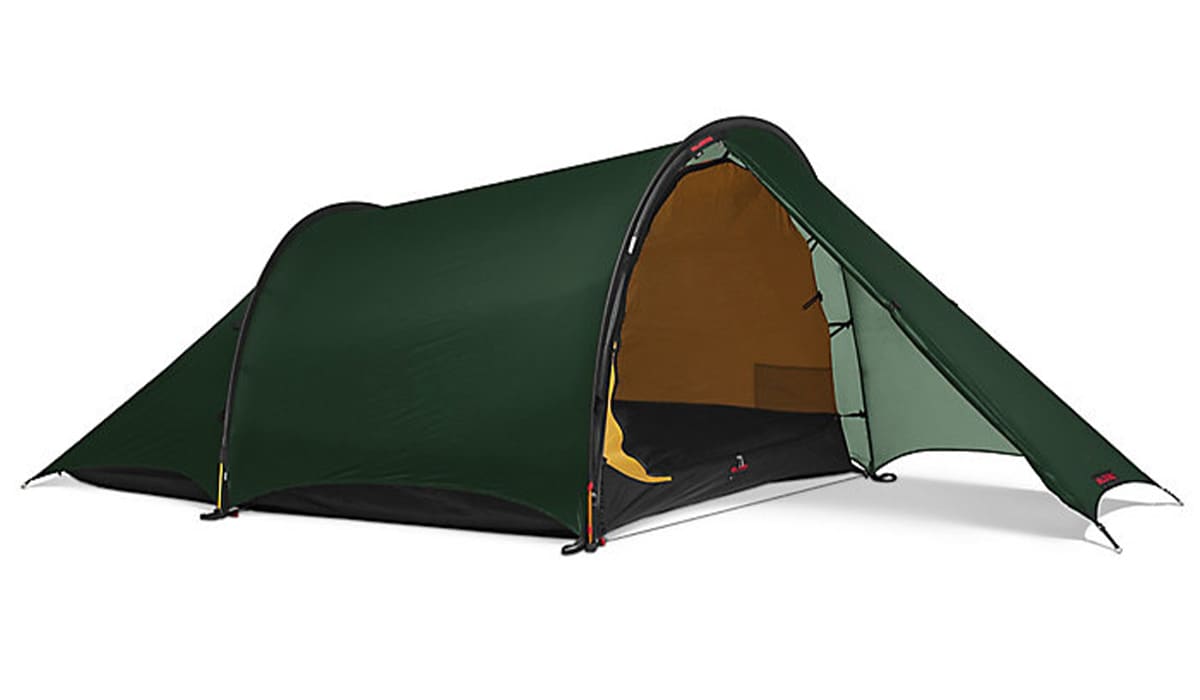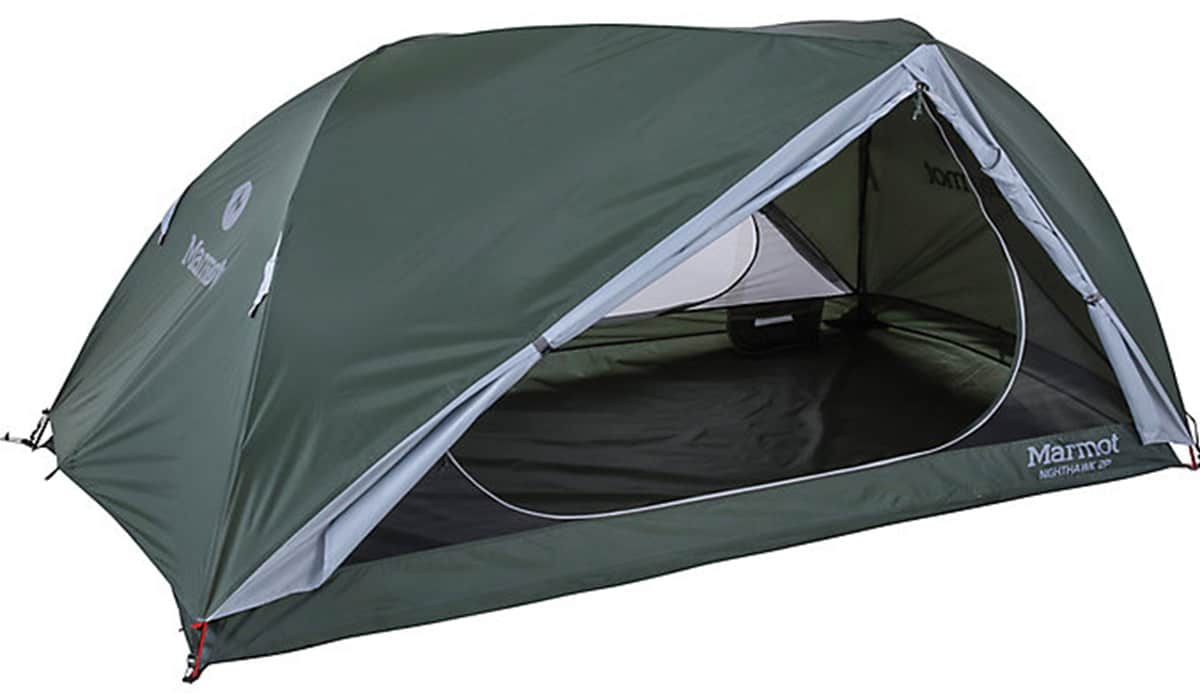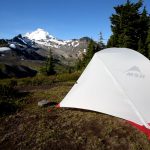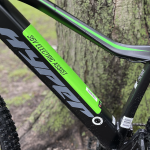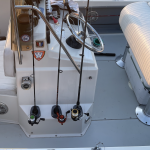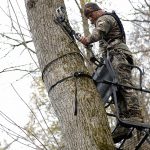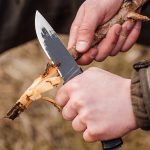The Best Backpacking Tents for Serious Adventure
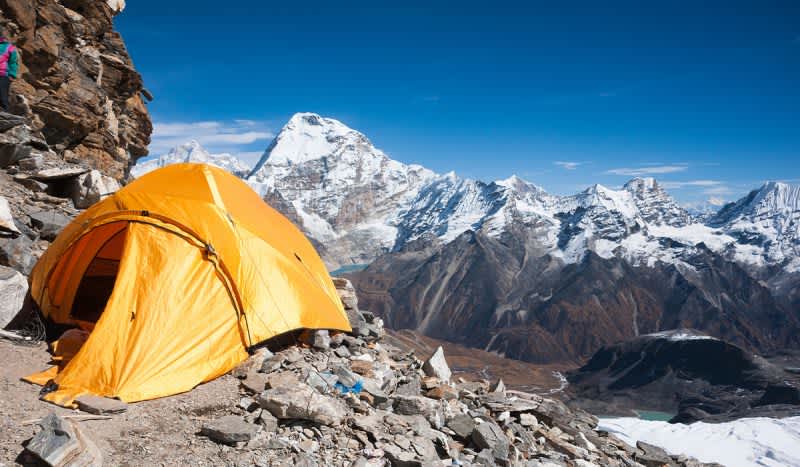
1. MSR Hubba Hubba NX – Editors Pick
The MSR Hubba Hubba shows up on a lot of lists, but is sometimes outshined by other models. So why is it my pick? I love the 30D ripstop floor material. I don’t want to have to baby my equipment, so while the 30D is a little heavier, I want that durability built in. The single-pole design is nice too, and makes for quick setup. With a minimum weight of 3.5 pounds, it falls right in that sweet spot of packability, while the 29 sq. ft. of floor area is perfectly suitable for two backpackers, or a single with room for gear. For me, it just doesn’t miss on anything.
2. REI Co-op Passage – Budget Pick
Some adventures have to happen on a budget, and there’s nothing wrong with that. The REI Co-op Passage offers a lot of the same features you want for serious backpacking adventure, but at a price that is easier to manage for the part-time backpacker. The REI option is the only model in the list that comes in over four pounds, and even then it’s only by a couple of ounces. We aren’t talking about double the weight of the other options. And like the Marmot, the added weight does come with the second largest footprint and peak height of our options. The reality is, you’re going to get the vast majority of the performance, for a fraction of the money. Does that work for everyone? No. But for many of us, close is good enough.
3. Big Agnes Copper Spur HV – Legacy Pick
Anyone that knows backpacking tents is familiar with the Copper Spur from Big Agnes as it has set the bar in the category for a long time. Dozens of other backpacking tent designs have been molded after the Copper Spur, and with good reason. Aside from the reputation of Big Agnes products, the Copper Spur has woven proprietary design elements and materials into the tent to make it an absolute performance powerhouse. The TipLok Tent Buckle system is one such feature that combines pole-tip capture, rainfly attachment, and tensioner into one element.
4. Hilleberg Anjan – Hardcore Pick
Hilleberg is a name that speaks for itself. Their products have been used around the world by some of the most hardcore adventurers the planet has ever seen. When it comes to backpacking tents, I don’t think any other brand offers the sheer selection that Hilleberg does. For our purposes, I selected the Anjan 3. The second-lightest tent on the list, you aren’t worried about what it adds to your pack. The Anjan design really stands out in warmer climates because of the ventilation design of the tent. We’ve all spent miserable days in tents with stagnant air, where you just can’t seem to get any fresh air in. The Anjan has been designed to maximize ventilation when needed. While it seems like a minor detail, for anyone that has experienced stale days in a tent, it can be the difference between torment and tolerance.
5. Marmot Nighthawk – Balance Pick
A little of this, a little of that, a price tag that’s a little easier on the wallet, put it all together and you have the Marmot Nighthawk. At just under four pounds it is on the heavier side, but if you want a little extra space, it also boasts the largest floor area, and the highest peak height by almost six inches! At least that extra weight is getting you some extra size. The Nighthawk also uses a criss-crossing pole design, unlike some of our other options, which no doubt helps add to the space, and the weight. It’s not the lightest and it isn’t the cheapest, but it is the biggest of the backpacking tents listed, and if you don’t mind a few extra ounces to get a few extra square feet, you’ve found your tent.
Denier and what it means to you
Denier is a unit of measure to convey the weight of a fabric in grams per 9,000 meters of fiber. So if you took one single thread of the fabric, stretched in 9,000 meters, and weighed it in grams, that is your denier weight, or D-rating on fabric. To put it in context, it’s essentially based on a single strand of silk. A single thread silk, 9,000 meters long, weighs about one gram, and would have a 1D rating. So, the heavier the thread, the higher the denier rating.
You don’t want to shell out a ton of money on the best backpacking tents, only to have them fail after a few seasons. However, you also don’t want to add too much weight to your pack with a heavy-duty tent. That’s where the tents and fabrics in this list come in. You get a great balance in both.
Important features for a backpacking tent
There are several key things I look for in a quality backpacking tent:
- Weight – You don’t want to haul more weight on your pack than you have to. Take a serious look at the weight of a tent before you buy it, and gauge that against what you will carry
- Space – Do you need 2,3 or 4 person capacity? The bigger the tent, the more weight it means. Also, how much gear do you carry and how much space do you want?
- Poles – Most serious backpacking tents use lightweight aluminum for the tent poles. Some also use new composite materials, which are extremely light and tough. Fiberglass poles work good, but the weight increase makes them my last choice
- Fabric – You’re looking at spending a decent chunk on the best backpacking tents. Make sure the fabric will hold up. The tents on this list all pass the durability tests.
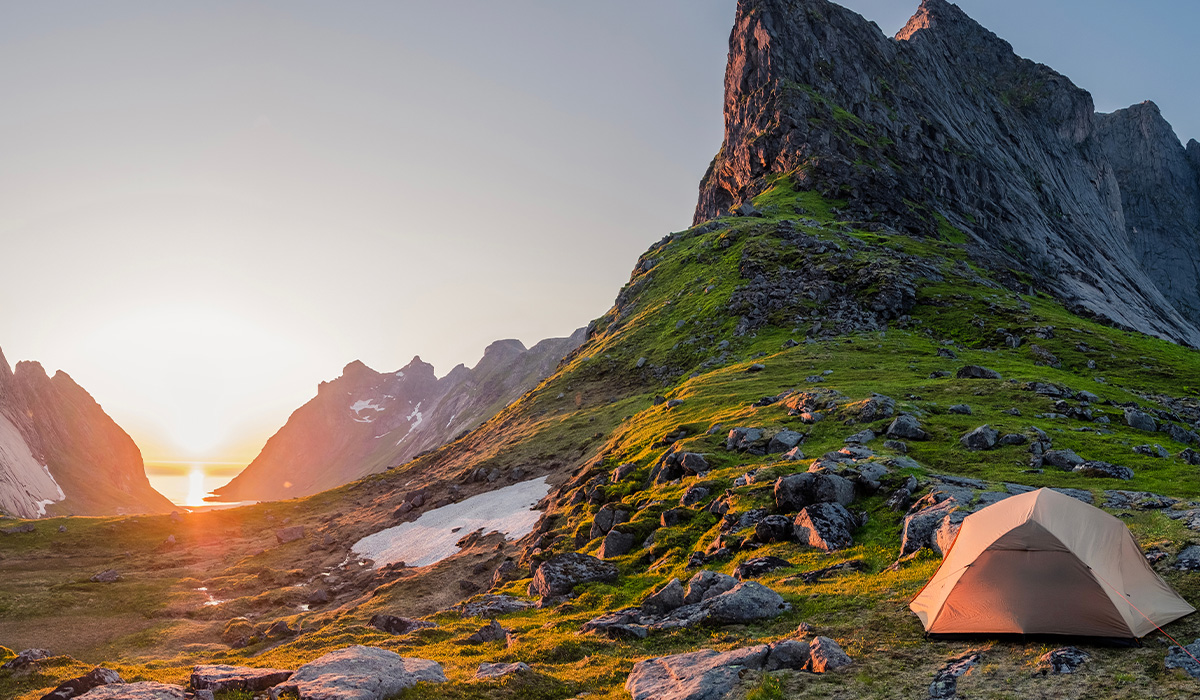
Looking at footprints
A footprint goes under the floor of your tent to help extend the life of the tent floor. We don’t set our tents up on living room carpet, (very often) they are set up in the wild. Uneven ground, branches, sticks, rocks. No matter how well we prep the ground for a tent, there will always be something we miss.
The footprint goes between the ground and the tent so the tent isn’t taking the beating. Is it a must-have? Not really. But is getting one wise? Maybe. It’s a personal choice, but if you make an investment in a quality tent, investing in a footprint seems wise.
Some tents need one. Others have one somewhat built in, or included. You might as well plan on adding some additional cost to the overall price of your tent, however and just get one. It makes the most sense, especially for the tents on this list. It’s an investment in protecting a tent which is, in itself, an investment.
What is considered truly lightweight in a backpacking tent?
If the tent is under 4 pounds, it is generally considered, across the industry, as lightweight. If it bests 2 pounds, it falls into the ultralight category. Know which one you need, because the costs and materials make a big difference.
Which is the best backpacking tent for serious campers?
I like the MSR Hubba Hubba, but honestly, I could go for every tent on this list. The Big Agnes is extremely popular, too.
We are committed to finding, researching, and recommending the best products. We earn commissions from purchases you make using the retail links in our product reviews. Learn more about how this works.

